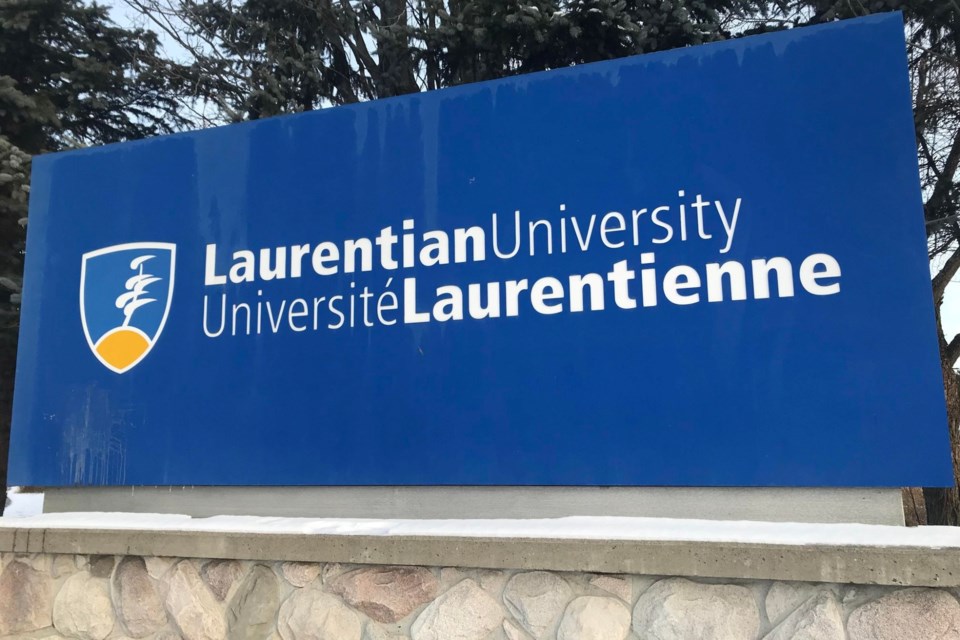Professors affected by Laurentian University’s insolvency are speaking out about the personal costs after the university recently passed the second anniversary of LU’s creditor protection filing.
On Feb. 1, 2021, Laurentian University became the first publicly funded university in Canada to file for protection under the Companies’ Creditors Arrangement Act (CCAA).
Laurentian’s journey under the CCAA was to last the rest of 2021, as well as most of 2022, for a total of 22 months in all.
The process, which Ontario Auditor General Bonnie Lysyk said Laurentian never needed to enter in the first place, included mass layoffs and program cancellations, the severing of ties with federated universities operating on campus (resulting in even more layoffs and program cancellations) and a plan of arrangement that will see LU creditors receive only roughly 14 to 24 per cent of what they’re owed over the next three years.
In a news release, the Canadian Association of University Teachers (CAUT) highlighted the impact of the CCAA process on two of its members who were professors at LU.
Valérie Raymond, a former professor in the French studies department, was informed she would lose her full-time, permanent position days before giving birth to her first child.
“The stress, anxiety and fear that this loss brought on at that point in my pregnancy are indescribable,” she said, in the press release issued by the or CAUT.
“The CCAA process the university used robbed my family of our financial security when I not only lost my maternity leave, but also was denied the appropriate severance pay that was owed to me.”
Born and raised in Sudbury, Raymond is now back at Laurentian, working as a contract employee.
“I found it very difficult to go back to this same institution that destroyed my career and denied me my approved, paid maternity leave,” she said.
“I returned because I’m still passionate about teaching and this French-language program is so important to our community. I’m teaching the same courses as before, only at a much lower pay grade, without any health benefits for me or my family and, of course, without any job security.”
“Faculty at all stages of their careers have paid dearly for the callous choices made by Laurentian’s former leadership,” said Fabrice Colin, President of the Laurentian University Faculty Association, in the press release.
“The effects continue to reverberate through the community and economy in Sudbury and across Northern Ontario. And, even though we were promised change by the federal government, we have yet to see action. The CCAA must be fixed before this happens to another community.”
Rather than lose his job outright, Frank Mallory, a former chair of the biology department, was pressured to retire. For the sake of his students and his children, he accepted.
“At the time I was supervising seven graduate students. I’m still working for free so that my remaining two students can complete their studies,” he said. “I had four young children, so I needed the benefits promised if I retired, even though it meant giving up my salary, my life insurance, my sabbatical, and free tuition for my kids.”
In response to the situation at Laurentian, the Liberal government promised to exclude public post-secondary institutions from the CCAA. Two years later, that change has yet to materialize.
In early December, NDP MP Charlie Angus introduced a private member’s bill (C-309) in the House of Commons to remove all public institutions from the CCAA.
Earlier, Senator Lucie Moncion proposed a bill in the Senate (S-215) that would exclude public post-secondary institutions from the CCAA. CAUT has urged the government to make a similar commitment in Budget 2023.
“The CCAA is a corporate tool that was never intended to be used by public institutions like Laurentian,” said David Robinson, executive director of CAUT, in the press release.
“We now know that the university administration had other options, including provincial assistance, but chose instead to let their staff and students pay for the cost of gross financial mismanagement.”
